
Acapulco: The Pearl of the Pacific
Acapulco, nestled on Mexico's Pacific coast, is a city known for its stunning beaches, vibrant nightlife, and rich history. Once a playground for Hollywood stars, Acapulco continues to enchant visitors with its natural beauty and cultural treasures. The city's wide bay is surrounded by mountains, offering breathtaking views that captivate tourists from around the world. The beaches are the heart of Acapulco, with popular spots like Playa Condesa and Playa Icacos offering golden sands and warm waters. For those seeking adventure, La Quebrada cliff divers provide a thrilling spectacle as they leap from towering cliffs into the ocean below. History enthusiasts can explore the Fort of San Diego, a 17th-century fortress that now houses a fascinating museum on the region's past. Acapulco's nightlife is legendary, with numerous bars, clubs, and restaurants lining the Costera Miguel Alemán. Visitors can enjoy live music, dance, and savor delicious local cuisine. The city's markets, like Mercado Central, offer a glimpse into everyday life and a chance to purchase unique handicrafts. With its blend of natural beauty, cultural heritage, and vibrant atmosphere, Acapulco is a destination that promises unforgettable experiences for every traveler.
Local tips in Acapulco
- Visit La Quebrada in the early evening to catch the most spectacular cliff diving shows.
- Stay in the Zona Dorada for easy access to the best beaches, restaurants, and nightlife.
- Use local buses or shared taxis to get around the city; they're affordable and convenient.
- Try the local seafood dishes, especially ceviche and pescado a la talla, at beachside restaurants.
- Bring sunscreen and stay hydrated, as the sun can be intense, especially during midday.
- Visit the Fort of San Diego on a weekday to avoid the weekend crowds.
Neighbourhoods in Acapulco
Acapulco: The Pearl of the Pacific
Acapulco, nestled on Mexico's Pacific coast, is a city known for its stunning beaches, vibrant nightlife, and rich history. Once a playground for Hollywood stars, Acapulco continues to enchant visitors with its natural beauty and cultural treasures. The city's wide bay is surrounded by mountains, offering breathtaking views that captivate tourists from around the world. The beaches are the heart of Acapulco, with popular spots like Playa Condesa and Playa Icacos offering golden sands and warm waters. For those seeking adventure, La Quebrada cliff divers provide a thrilling spectacle as they leap from towering cliffs into the ocean below. History enthusiasts can explore the Fort of San Diego, a 17th-century fortress that now houses a fascinating museum on the region's past. Acapulco's nightlife is legendary, with numerous bars, clubs, and restaurants lining the Costera Miguel Alemán. Visitors can enjoy live music, dance, and savor delicious local cuisine. The city's markets, like Mercado Central, offer a glimpse into everyday life and a chance to purchase unique handicrafts. With its blend of natural beauty, cultural heritage, and vibrant atmosphere, Acapulco is a destination that promises unforgettable experiences for every traveler.
When is the best time to go to Acapulco?
Iconic landmarks you can’t miss
Plaza Álvarez
Discover the vibrant heart of Acapulco at Plaza Álvarez, a city park filled with lush greenery, local culture, and stunning views.
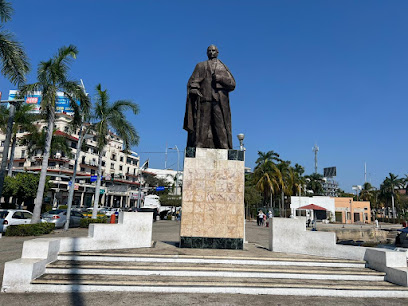
La Quebrada
Experience the thrilling cliff diving at La Quebrada, Acapulco's iconic tourist attraction offering breathtaking views and unforgettable performances.
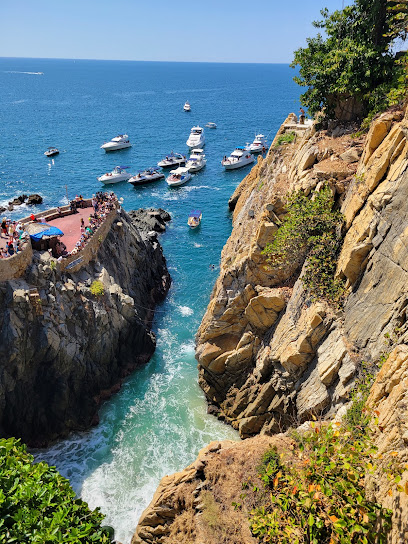
Fiesta & Bonanza yachts
Discover the breathtaking coastal beauty of Acapulco with Fiesta & Bonanza Yachts, offering unforgettable sailing adventures and picturesque views.
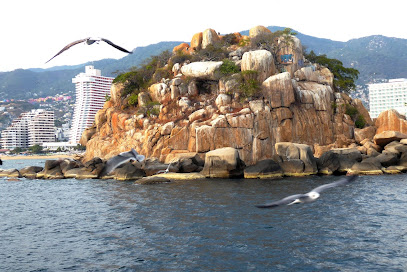
Parque De La Reina
Discover the natural beauty of Parque De La Reina, a stunning garden and state park in Acapulco, perfect for relaxation and exploration amidst lush landscapes.
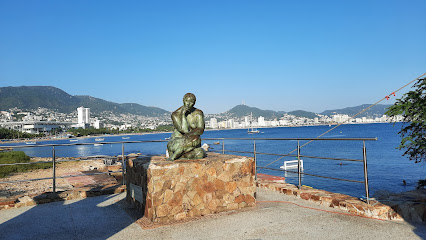
El Rollo Acapulco
Experience the thrill of El Rollo Acapulco, a vibrant water park offering fun slides, relaxing pools, and exciting attractions for all ages.
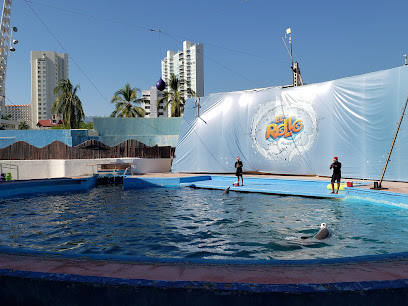
Acapulco Historical Museum of Fort San Diego
Discover the rich maritime history of Acapulco at the Museum of Fort San Diego, where past and present converge in a spectacular coastal setting.
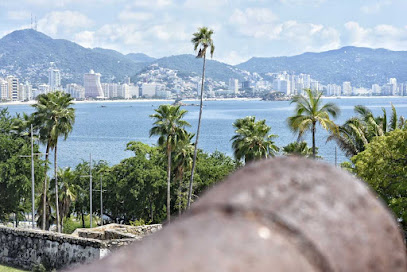
Mirador Puerto Marqués
Experience stunning panoramic views at Mirador Puerto Márquez, Acapulco's scenic gem, perfect for relaxation and breathtaking sunset photography.
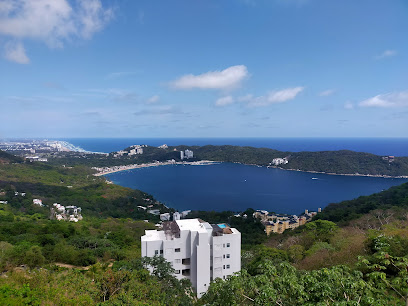
Catedral de Acapulco (Nuestra Señora de la Soledad)
Discover the stunning beauty and spiritual serenity of Catedral de Acapulco, a must-visit landmark in the heart of Acapulco's vibrant Centro district.
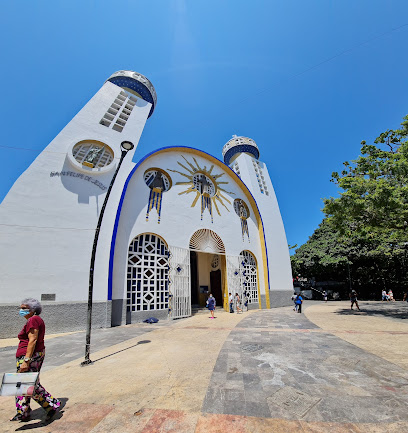
Capilla de la Paz
Discover the stunning Capilla de la Paz in Acapulco, a serene chapel offering breathtaking views and a tranquil atmosphere perfect for reflection.
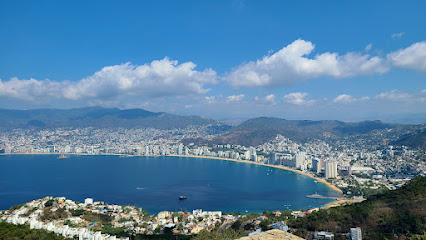
Pichilingue Beach
Experience the tranquil beauty of Pichilingue Beach in Acapulco, where golden sands and azure waters create a perfect paradise for relaxation.
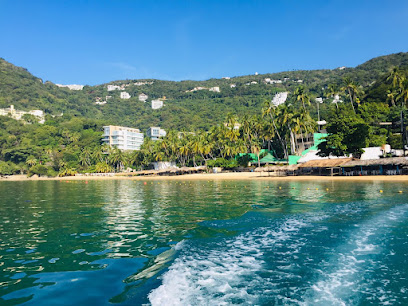
Tehuacalco
Explore the ancient ruins of Tehuacalco, a significant archaeological site in Guerrero, Mexico, and discover the rich heritage of Mesoamerican civilization.
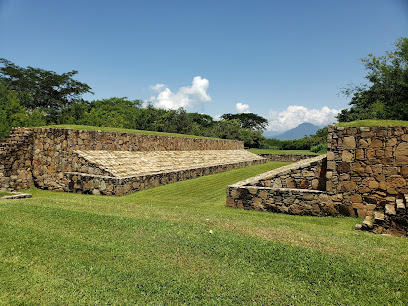
Zona Arqueológica de Palma Sola
Explore the ancient wonders of Zona Arqueológica de Palma Sola, a hidden gem in Acapulco showcasing stunning Mesoamerican stone carvings in serene natural surroundings.
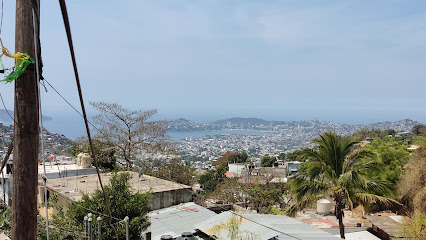
Cocodrilario Acutus
Experience the wonder of nature at Cocodrilario Acutus, a premier nature preserve in Acapulco dedicated to crocodile conservation and wildlife education.
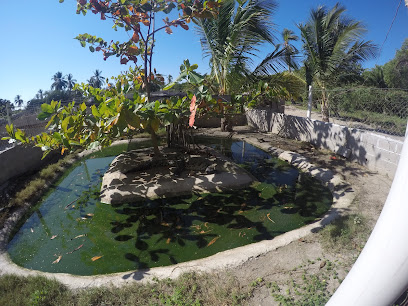
Fortín Álvarez
Explore the captivating Fortín Álvarez in Acapulco, where history comes alive through immersive reenactments and stunning coastal views.
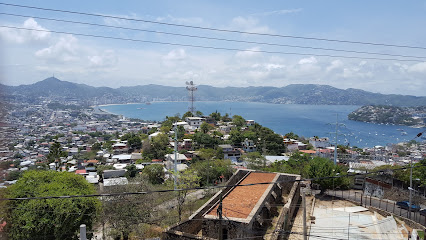
Plazoleta de La Quebrada
Experience the thrilling cliff divers and stunning views at Plazoleta de La Quebrada, an iconic Acapulco landmark that captures the essence of adventure.
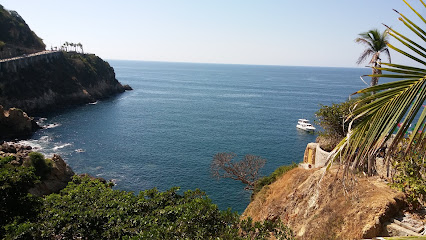
Unmissable attractions to see
Plaza Álvarez
Experience the vibrant culture and community spirit at Plaza Álvarez, Acapulco's charming city park and tourist attraction.
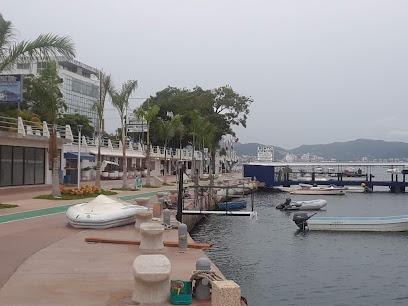
La Quebrada
Experience the exhilarating cliff diving at La Quebrada, an iconic attraction in Acapulco, where adventure meets breathtaking views.
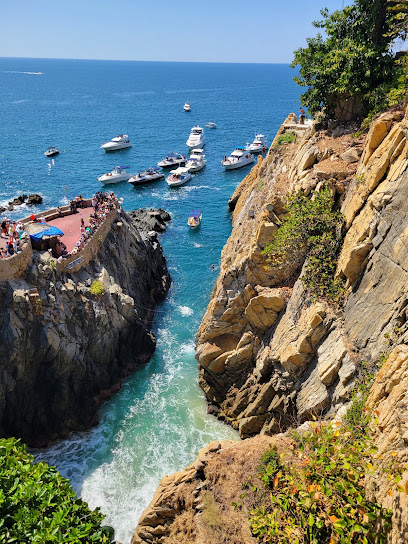
Playa Majahua
Experience the serene beauty and vibrant culture of Playa Majahua, a must-visit beach destination in Guerrero, Mexico.
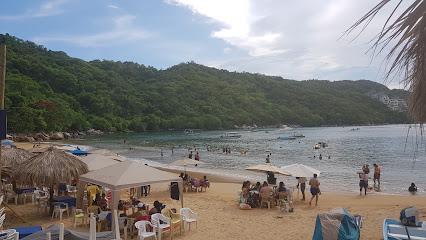
Caleta Beach
Discover the sun-kissed shores of Caleta Beach in Guerrero, where golden sands meet vibrant local culture and endless adventure awaits.
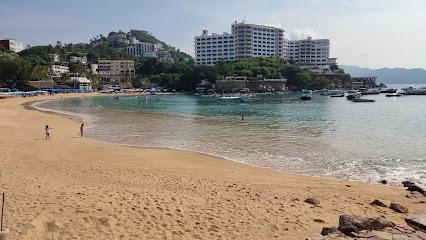
Fiesta & Bonanza yachts
Discover the ultimate sailing experience in Acapulco with Fiesta & Bonanza Yachts - a perfect blend of adventure, relaxation, and stunning ocean views.
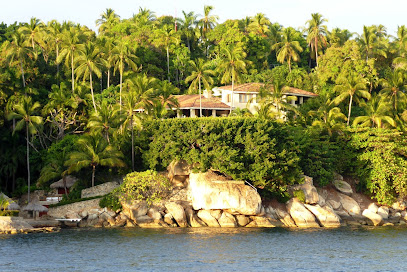
Parque Papagayo
Experience the lush landscapes and family-friendly activities at Parque Papagayo, Acapulco's premier ecological park and tourist attraction.
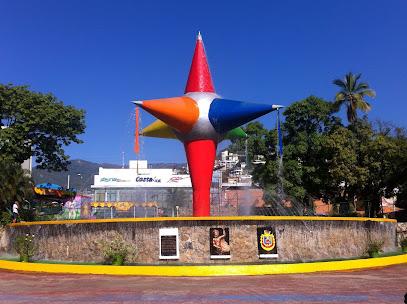
Parque De La Reina
Discover the serene beauty of Parque De La Reina, a lush garden and state park that offers a tranquil escape in Acapulco, Mexico.
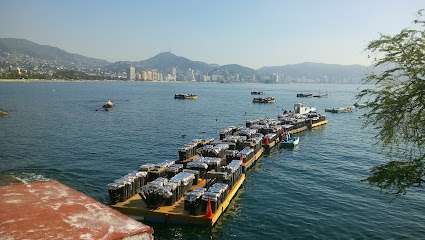
El Rollo Acapulco
Experience a day of adventure and relaxation at El Rollo Acapulco, a premier amusement and water park offering fun for all ages.
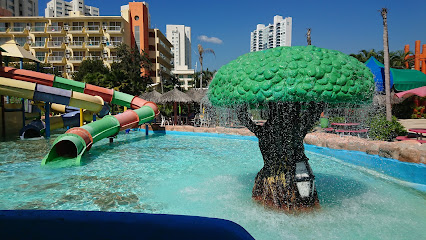
Revolcadero
Experience the serene beauty and exciting activities at Revolcadero Beach, a hidden gem in Punta Diamante, Acapulco, perfect for relaxation and adventure.
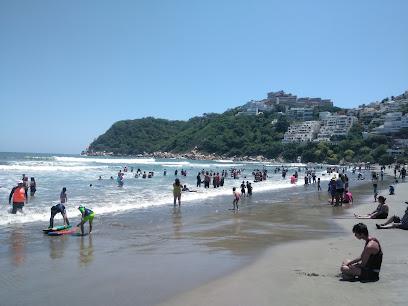
Acapulco Historical Museum of Fort San Diego
Explore Acapulco's rich maritime history at the Fort San Diego Museum, a historical treasure showcasing fascinating artifacts and stories.
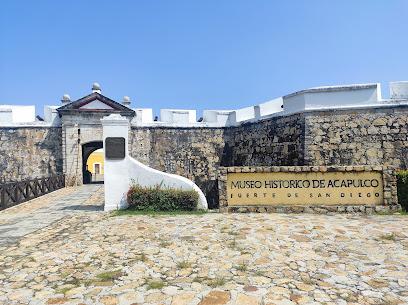
Unidad Deportiva Acapulco
Experience fitness and fun at Unidad Deportiva Acapulco, a vibrant hub for sports and leisure activities in the heart of this coastal paradise.
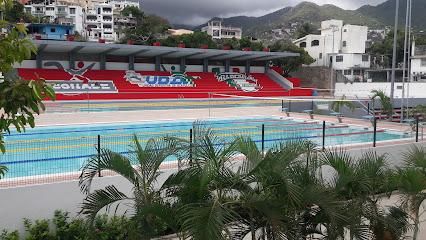
Mirador Puerto Marqués
Explore the breathtaking viewpoints at Mirador Puerto Marqués, a tranquil escape in Acapulco with stunning bay views and vibrant sunsets.
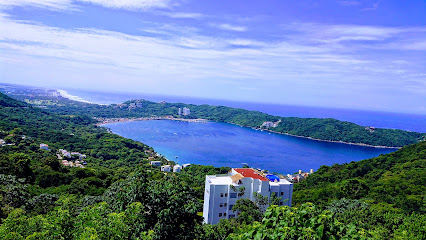
Catedral de Acapulco (Nuestra Señora de la Soledad)
Experience the architectural splendor and spiritual essence of Catedral de Acapulco, a must-visit landmark in the heart of this vibrant coastal city.
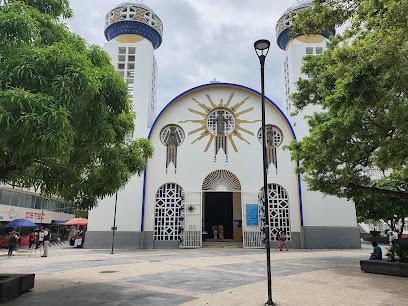
Campamento Tortuguero “Playa Hermosa”
Discover the wonders of sea turtles at Campamento Tortuguero Playa Hermosa, a vital conservation hub and scenic destination in Acapulco.
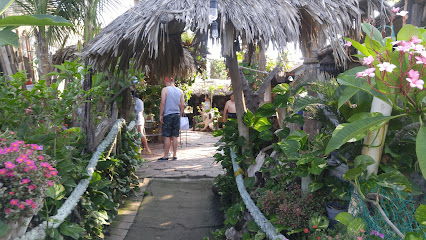
Playa Pie de La Cuesta
Experience the breathtaking beauty and tranquility of Playa Pie de La Cuesta, a hidden gem in Acapulco perfect for relaxation and adventure.
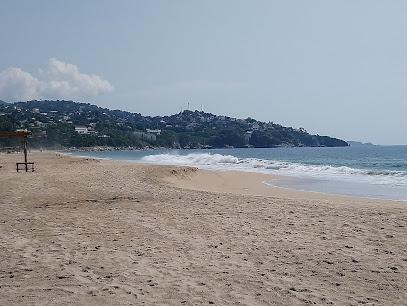
Essential places to dine
Los Buzos
Experience the freshest seafood at Los Buzos in Acapulco - a culinary gem offering delightful flavors and a vibrant atmosphere.
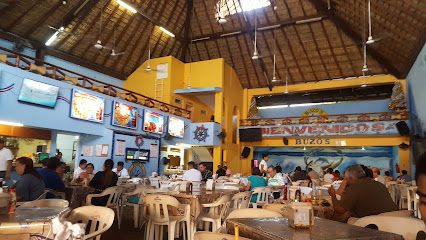
Paititi del Mar
Discover fresh seafood delights at Paititi del Mar in Acapulco - where every meal is a celebration of coastal flavors.
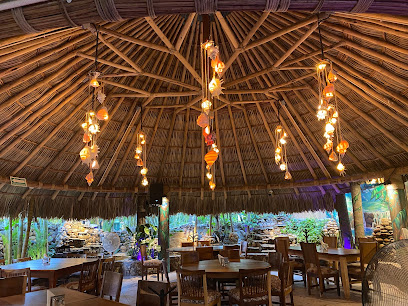
Taquitos Acapulco
Experience the authentic taste of Mexico at Taquitos Acapulco - where every taco tells a story.
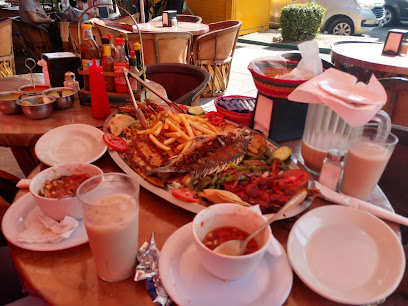
Buzos Costera - Restaurante de Mariscos en Acapulco
Discover Buzos Costera: A delightful seafood restaurant offering fresh flavors and breathtaking views in Acapulco's coastal paradise.
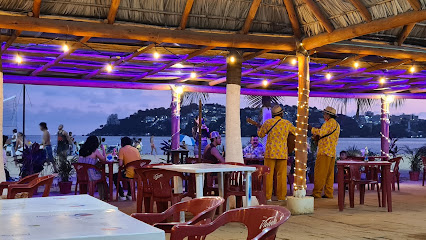
El Zorrito
Experience the vibrant flavors of Mexico at El Zorrito in Acapulco—where tradition meets taste in every bite.
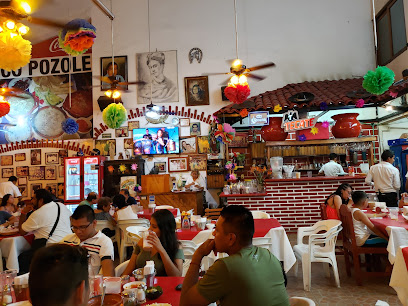
Zibu Acapulco
Discover Zibu Acapulco: A fusion of stunning ocean views and exquisite Mexican cuisine in the heart of Acapulco.
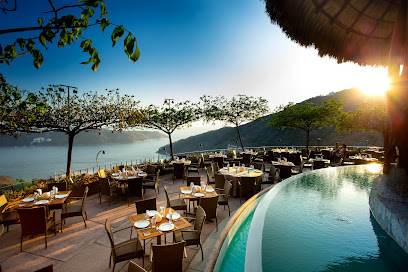
Restaurant Flor del Puerto
Discover exquisite seafood dining at Restaurant Flor del Puerto, where fresh flavors meet stunning coastal views in Acapulco.
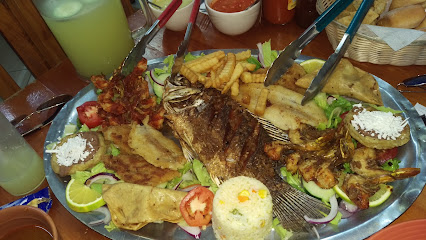
Mi Piaci
Experience authentic Italian cuisine at Mi Piaci in Acapulco – where delicious flavors meet vibrant ambiance.
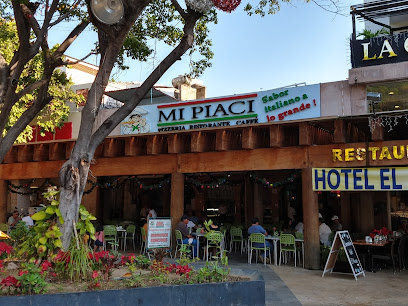
La Finca Acapulco
Experience authentic Mexican cuisine at La Finca Acapulco - your destination for delightful breakfasts and traditional flavors in a vibrant setting.
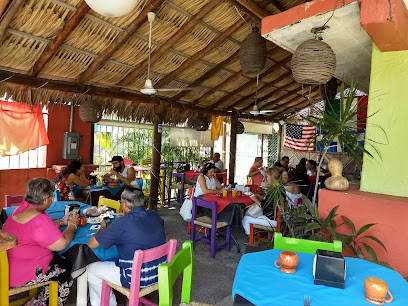
Si Señor
Discover Si Señor in Acapulco: Where Authentic Mexican Flavors Meet Stunning Coastal Views for an Unforgettable Dining Experience.
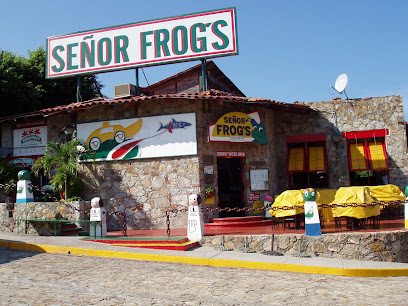
La Granja
Experience culinary delight at La Granja, Acapulco's favorite gastropub offering exquisite local flavors and family-friendly atmosphere.
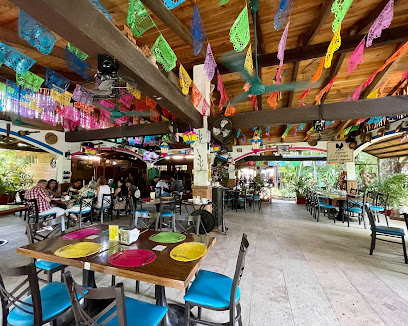
Playita Santa Lucia Beach Club
Experience beachfront dining at Playita Santa Lucia Beach Club in Acapulco – savor grilled specialties and fresh seafood with breathtaking ocean views.
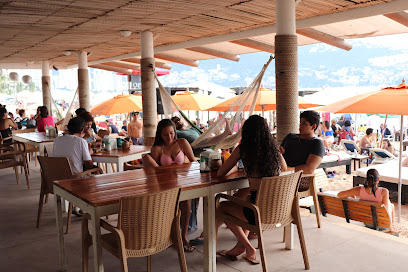
Restaurante El Fogón
Experience authentic Mexican cuisine at Restaurante El Fogón in Acapulco, where delicious flavors meet warm hospitality.
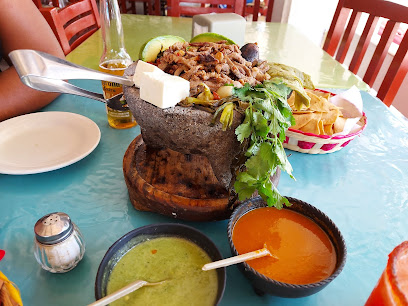
El Jaguar
Experience authentic Mexican breakfast at El Jaguar in Acapulco—where tradition meets taste in every delightful bite.
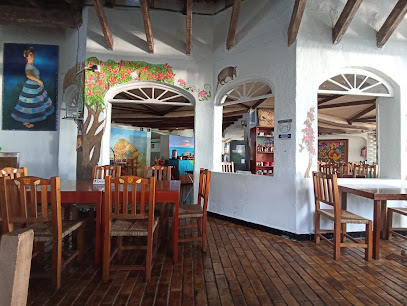
RESTAURANTE LOS ANAFRES ACAPULCO
Experience authentic Mexican breakfast delights at Restaurante Los Anafres Acapulco - where flavor meets tradition.
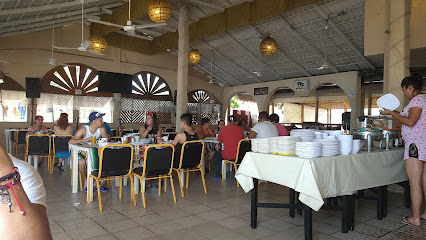
Markets, malls and hidden boutiques
Galerías Acapulco
Explore Galerías Acapulco: Your one-stop shopping mall for fashion, dining, and entertainment in the heart of Acapulco.
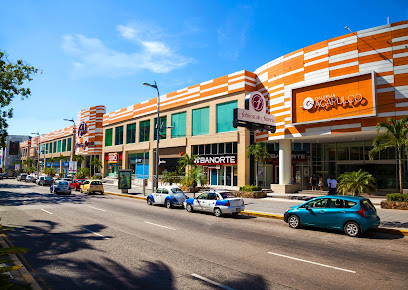
La Isla Shopping Village
Experience the vibrant shopping and dining atmosphere at La Isla Shopping Village in Acapulco, a true retail gem on Mexico's coast.
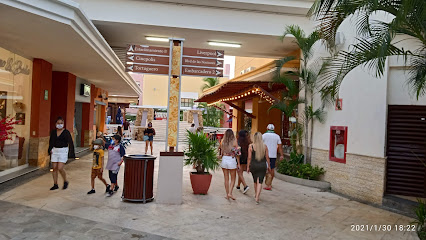
Liverpool
Explore Liverpool in Acapulco, a premier department store offering diverse shopping experiences from clothing to electronics and more.
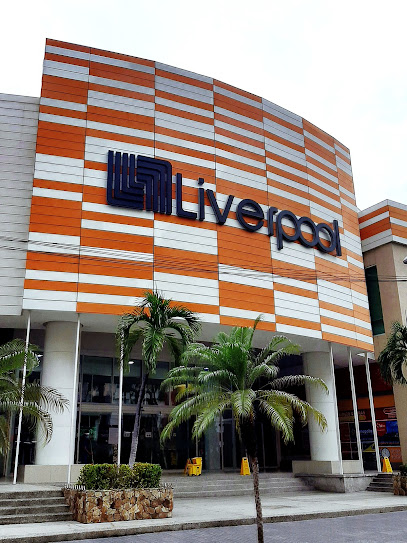
Señor Frog’s Official Store
Discover a vibrant blend of souvenirs and clothing at Señor Frog’s Official Store, a must-visit spot in Acapulco for unforgettable keepsakes.
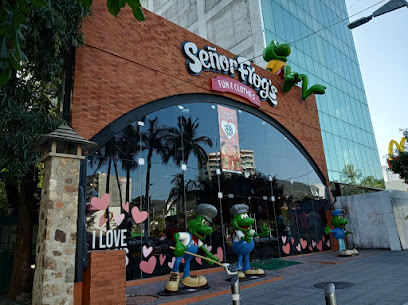
Osmart -Novedades y Regalos- Velázquez
Discover unique gifts, home goods, and toys at Osmart, Acapulco's enchanting gift shop for all ages.

Vertiche
Explore Vertiche in Acapulco for exclusive women's fashion, offering stylish dresses and clothing in a vibrant shopping atmosphere.

Plaza Marbella
Explore Plaza Marbella, Acapulco's premier shopping mall, where vibrant retail, delicious dining, and entertainment converge for an unforgettable experience.
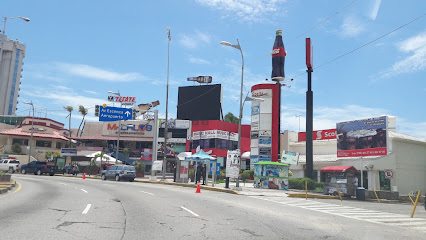
Hang Ten
Discover the vibrant world of fashion at Hang Ten in Acapulco, offering stylish clothing and accessories for every occasion.

Musas
Discover unique fashion and accessories at Musas, a boutique in Acapulco that celebrates local style and vibrant culture.

Made in Acapulco
Discover unique styles at Made in Acapulco, where local fashion meets vibrant culture in a trendy clothing store.

Todomoda
Discover trendy bags, cosmetics, and jewelry at Todomoda, the ultimate fashion accessories store in Acapulco, where style meets affordability.
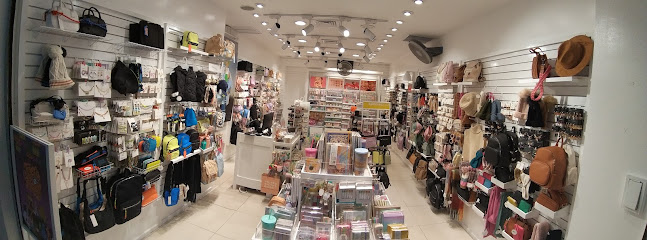
Glam Shop Galerías Acapulco
Explore the ultimate fashion accessories store in Acapulco, offering trendy jewelry, handbags, and unique items that elevate your style.
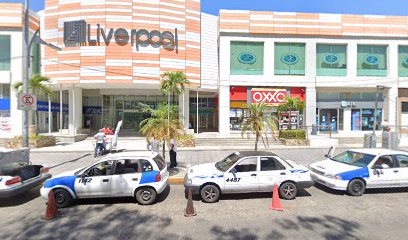
Silvershop Acapulco
Discover the essence of Acapulco at Silvershop, where local crafts, jewelry, and clothing await to enrich your travel experience.
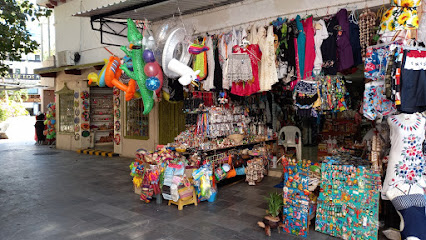
Joyería Pandora
Explore the elegance of Joyería Pandora, where exquisite jewelry meets exceptional service in the heart of Acapulco.

DekoraVinyl Pegando Ideas
Explore the artistic charm of Acapulco at DekoraVinyl Pegando Ideas, your go-to destination for unique gifts and custom decor.

Essential bars & hidden hideouts
Si Señor
Si Señor in Acapulco offers an unforgettable dining experience with authentic Mexican flavors, stunning views, and a lively atmosphere.
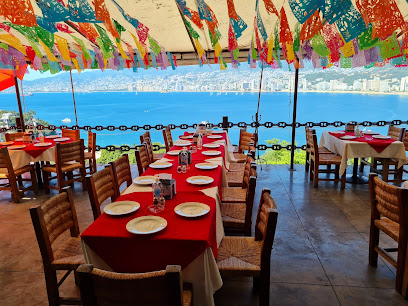
Barbarroja Acapulco
Discover the vibrant flavors of Barbarroja Acapulco, where fresh grilled delights meet a lively atmosphere by the coast.
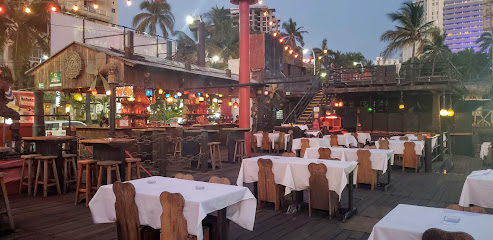
Antigua Acapulco
Discover the vibrant flavors of Mexico at Antigua Acapulco, a premier grill restaurant offering a delightful dining experience.
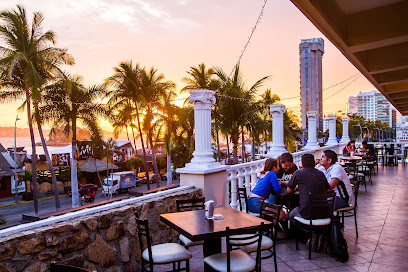
London English Pub
Discover the lively essence of British pub culture at London English Pub in Acapulco – where good drinks and great company await.
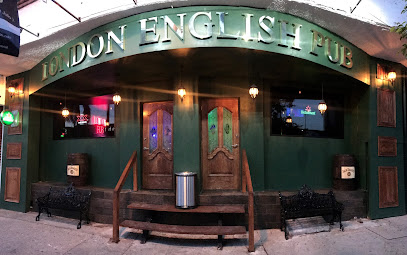
Terraza Sunset Bar
Experience breathtaking sunsets and vibrant nightlife at Terraza Sunset Bar in Acapulco, where exceptional cocktails and local flavors await.
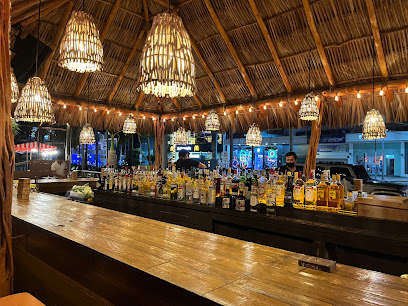
Britannia English Pub
Discover the vibrant nightlife at Britannia English Pub in Acapulco, where delicious food, refreshing drinks, and live music create an unforgettable experience.
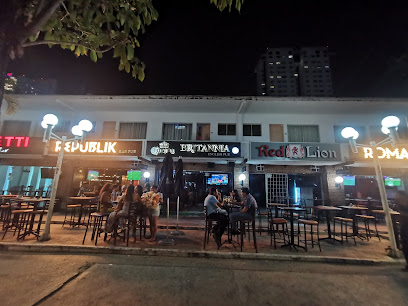
Hannah Sun Club
Discover the perfect blend of exquisite dining and lively nightlife at Hannah Sun Club in Acapulco, where every night is a celebration.
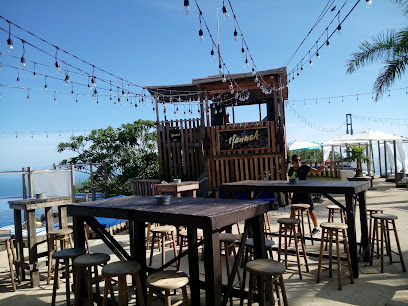
Bar BCN
Experience the vibrant nightlife at Bar BCN in Costa Azul, Acapulco—where great drinks and lively entertainment await!
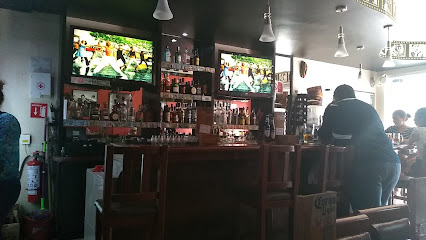
Sunset Bar, Las Brisas
Discover the enchanting Sunset Bar at Las Brisas, where stunning ocean views meet exquisite cocktails in Acapulco's vibrant atmosphere.
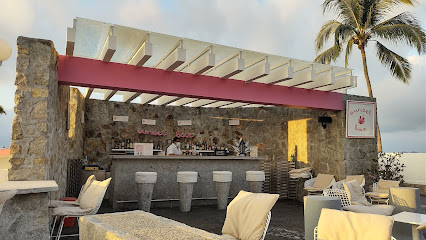
Republik Bar
Discover the vibrant nightlife at Republik Bar in Acapulco, where delicious cocktails and live music create an unforgettable experience.
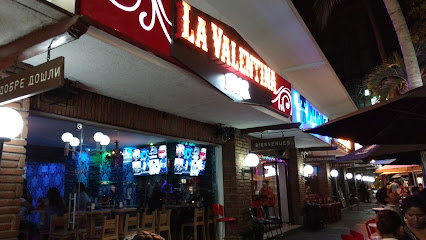
Circus Bar
Experience the electrifying nightlife of Acapulco at Circus Bar, where vibrant energy and refreshing cocktails await every visitor.
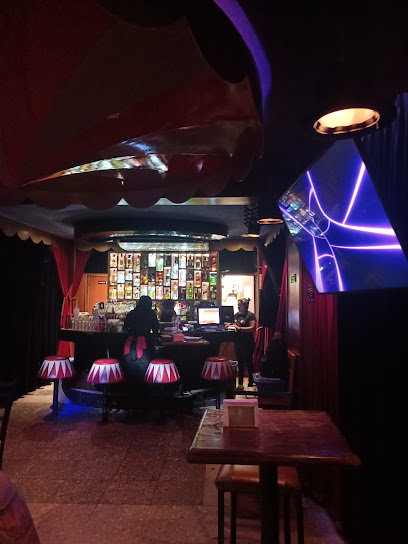
Garrison Pub & Billiards
Experience the vibrant nightlife of Acapulco at Garrison Pub & Billiards, where billiards, local drinks, and lively atmosphere come together for an unforgettable night.

Mad Cervecería & Bar
Enjoy a unique grill and bar experience at Mad Cervecería & Bar in Acapulco, where vibrant nightlife meets delicious cuisine and craft beers.
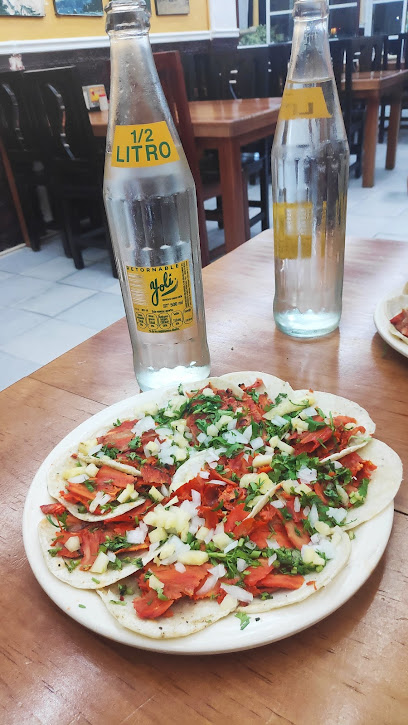
Bigotes Sport Bar
Discover the lively vibes of Bigotes Sport Bar in Acapulco, where live piano music and refreshing drinks create unforgettable nights.
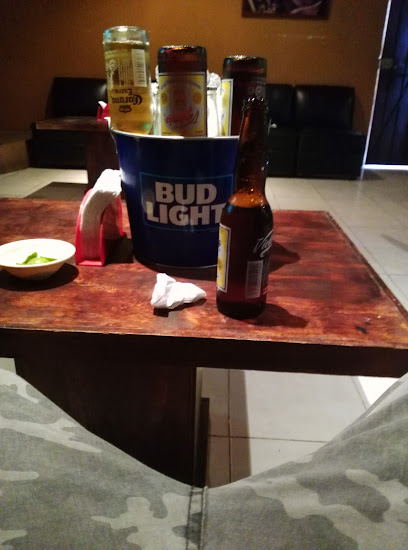
Local Phrases
-
- HelloHola
[oh-lah] - GoodbyeAdiós
[ah-dee-ohs] - YesSí
[see] - NoNo
[noh] - Please/You're welcomePor favor/De nada
[por fah-vor/deh nah-dah] - Thank youGracias
[grah-see-ahs] - Excuse me/SorryPerdón/Lo siento
[pair-dohn/loh see-ehn-toh] - How are you?¿Cómo estás?
[koh-moh ehs-tahs] - Fine. And you?Bien. ¿Y tú?
[byen. ee too] - Do you speak English?¿Hablas inglés?
[ah-blahs een-glehs] - I don't understandNo entiendo
[noh ehn-tee-ehn-doh]
- HelloHola
-
- I'd like to see the menu, pleaseMe gustaría ver el menú, por favor
[meh goos-tah-ree-ah behr ehl meh-noo, por fah-vor] - I don't eat meatNo como carne
[noh koh-moh kahr-neh] - Cheers!¡Salud!
[sah-lood] - I would like to pay, pleaseMe gustaría pagar, por favor
[meh goos-tah-ree-ah pah-gahr, por fah-vor]
- I'd like to see the menu, pleaseMe gustaría ver el menú, por favor
-
- Help!¡Ayuda!
[ah-yoo-dah] - Go away!¡Vete!
[veh-teh] - Call the Police!¡Llama a la policía!
[yah-mah ah lah poh-lee-see-ah] - Call a doctor!¡Llama a un médico!
[yah-mah ah oon meh-dee-koh] - I'm lostEstoy perdido/a
[ehs-toy pair-dee-doh/ah] - I'm illEstoy enfermo/a
[ehs-toy ehn-fehr-moh/ah]
- Help!¡Ayuda!
-
- I'd like to buy...Me gustaría comprar...
[meh goos-tah-ree-ah kohm-prahr...] - I'm just lookingSólo estoy mirando
[soh-loh ehs-toy mee-rahn-doh] - How much is it?¿Cuánto cuesta?
[kwan-toh kwehs-tah] - That's too expensiveEso es demasiado caro
[eh-soh ehs deh-mah-see-ah-doh kah-roh] - Can you lower the price?¿Puedes bajar el precio?
[pweh-dehs bah-har ehl pree-syoh]
- I'd like to buy...Me gustaría comprar...
-
- What time is it?¿Qué hora es?
[keh o-rah ehs] - It's one o'clockEs la una en punto
[ehs lah oo-nah ehn poon-toh] - Half past (10)Las diez y media
[lahs dyehs ee meh-dee-ah] - MorningMañana
[mah-nyah-nah] - AfternoonTarde
[tahr-deh] - EveningNoche
[noh-cheh] - YesterdayAyer
[ah-yehr] - TodayHoy
[oy] - TomorrowMañana
[mah-nyah-nah] - 1Uno
[oo-noh] - 2Dos
[dohs] - 3Tres
[trehs] - 4Cuatro
[kwah-troh] - 5Cinco
[seen-koh] - 6Seis
[seys] - 7Siete
[syeh-teh] - 8Ocho
[oh-choh] - 9Nueve
[nweh-veh] - 10Diez
[dyehs]
- What time is it?¿Qué hora es?
-
- Where's a/the...?¿Dónde está el/la...?
[dohn-deh ehs-tah ehl/lah] - What's the address?¿Cuál es la dirección?
[kwal ehs lah dee-rehk-syohn] - Can you show me (on the map)?¿Puedes mostrarme (en el mapa)?
[pweh-dehs mohs-trahr-meh (ehn ehl mah-pah)] - When's the next (bus)?¿Cuándo es el próximo (autobús)?
[kwan-doh ehs ehl proh-ksee-moh (ow-toh-booce)] - A ticket (to ....)Un boleto (a ...)
[oon boh-leh-toh (ah ...)]
- Where's a/the...?¿Dónde está el/la...?
History of Acapulco
-
Long before the arrival of Europeans, Acapulco was inhabited by indigenous peoples such as the Nahuas. These early settlers established fishing villages and small communities along the coast, taking advantage of the rich marine resources and fertile land.
-
In 1521, Spanish conquistador Hernán Cortés arrived in Acapulco, recognizing its strategic importance as a port. By 1531, the Spanish had formally established the city, using it as a key point for maritime trade and communication between Asia and the Americas.
-
From 1565 to 1815, Acapulco became a bustling hub for the Manila Galleon trade route, connecting the Philippines and Mexico. Ships laden with silk, spices, porcelain, and other goods from Asia would arrive in Acapulco, which then served as a distribution point for these treasures throughout New Spain.
-
The lucrative galleon trade made Acapulco a target for pirates and privateers. To protect the city and its valuable cargo, the Spanish constructed Fort San Diego in 1616. This fortress played a crucial defensive role and remains a historical landmark today.
-
Acapulco was a significant site during the Mexican War of Independence (1810-1821). The city was captured by insurgent forces led by José María Morelos in 1813, marking a pivotal moment in the struggle against Spanish rule.
-
In the mid-20th century, Acapulco transformed into a glamorous destination for Hollywood stars, international celebrities, and affluent tourists. The construction of luxury hotels, resorts, and the iconic Acapulco International Airport in 1945 cemented its status as a premier vacation hotspot.
-
Today, Acapulco is a vibrant city that blends its rich historical heritage with modern attractions. The city offers a mix of cultural experiences, from visiting historic sites like Fort San Diego and the Cathedral of Our Lady of Solitude to enjoying its stunning beaches and lively nightlife.
Acapulco Essentials
-
Acapulco is served by the General Juan N. Álvarez International Airport (ACA), located about 26 kilometers from the city center. Direct flights are available from major cities in Mexico and some international destinations. Alternatively, you can reach Acapulco by bus from Mexico City, which takes approximately 5-6 hours. Major bus companies such as Estrella de Oro and Estrella Blanca operate regular services to Acapulco. For those driving, Acapulco is accessible via the Autopista del Sol (Highway 95D) from Mexico City.
-
In Acapulco, taxis are widely available and can be hailed on the street or booked through apps like Uber. Public buses offer an affordable option for getting around the city, but they can be crowded. For a more scenic experience, consider taking the retro-looking 'Calandrias,' which are horse-drawn carriages. Car rentals are available at the airport and in the city, but driving can be challenging due to heavy traffic and local driving habits.
-
The official currency in Acapulco is the Mexican Peso (MXN). Credit and debit cards are widely accepted in hotels, restaurants, and larger shops, but it's advisable to carry some cash for smaller establishments and markets. ATMs are plentiful, especially in tourist areas, but be cautious of skimming devices. Currency exchange services are available at the airport, banks, and in various locations throughout the city.
-
While Acapulco is generally safe for tourists, certain areas have higher crime rates, particularly those targeting tourists. Avoid neighborhoods like Coloso and Renacimiento, especially at night. Stick to well-lit, busy areas and avoid walking alone after dark. Use authorized taxis or rideshare services rather than hailing cabs on the street. Keep your valuables secure and be cautious of pickpockets in crowded areas.
-
In case of emergency, dial 911 for police, fire, or medical assistance. Major hospitals in Acapulco include the Hospital del Pacífico and Clínica Sanatorio Santa Lucia, which offer emergency services. It's advisable to have travel insurance that covers medical emergencies. Pharmacies are widespread and can provide over-the-counter medications for minor health issues.
-
Fashion: Do dress casually but modestly; swimwear is appropriate at the beach but not in town. Religion: Do respect religious customs, particularly when visiting churches; cover your head and shoulders if required. Public Transport: Do be courteous and offer your seat to elderly or disabled passengers. Don't eat or drink on public buses. Greetings: Do greet people with a handshake or a friendly 'hola.' Eating & Drinking: Do try local dishes like pozole and ceviche. Don't refuse food or drink offerings from locals, as it can be seen as impolite.
-
To experience Acapulco like a local, visit the Mercado Central for fresh produce and local crafts. Enjoy a meal at a 'fondita,' a small, family-run restaurant serving traditional Mexican food. Take a stroll along the Costera Miguel Alemán for beautiful ocean views. Don't miss the famous cliff divers at La Quebrada, a must-see spectacle. For a unique experience, visit the local 'tianguis' markets, where you can find everything from clothes to street food.
Trending Landmark in Acapulco
-
Plaza Álvarez
-
La Quebrada
-
Fiesta & Bonanza yachts
-
Parque De La Reina
-
El Rollo Acapulco
-
Acapulco Historical Museum of Fort San Diego
-
Mirador Puerto Marqués
-
Catedral de Acapulco (Nuestra Señora de la Soledad)
-
Capilla de la Paz
-
Pichilingue Beach
-
Tehuacalco
-
Zona Arqueológica de Palma Sola
-
Cocodrilario Acutus
-
Fortín Álvarez
-
Plazoleta de La Quebrada
Nearby Cities to Acapulco
-
Things To Do in Taxco
-
Things To Do in Mexico City
-
Things To Do in Puebla
-
Things To Do in Puerto Escondido
-
Things To Do in Oaxaca
-
Things To Do in Queretaro
-
Things To Do in San Miguel de Allende
-
Things To Do in Veracruz
-
Things To Do in Guanajuato
-
Things To Do in Guadalajara
-
Things To Do in Puerto Vallarta
-
Things To Do in Chiapas
-
Things To Do in Ixtapa-Zihuatanejo
-
Things To Do in Quetzaltenango
-
Things To Do in Lake Atitlán















